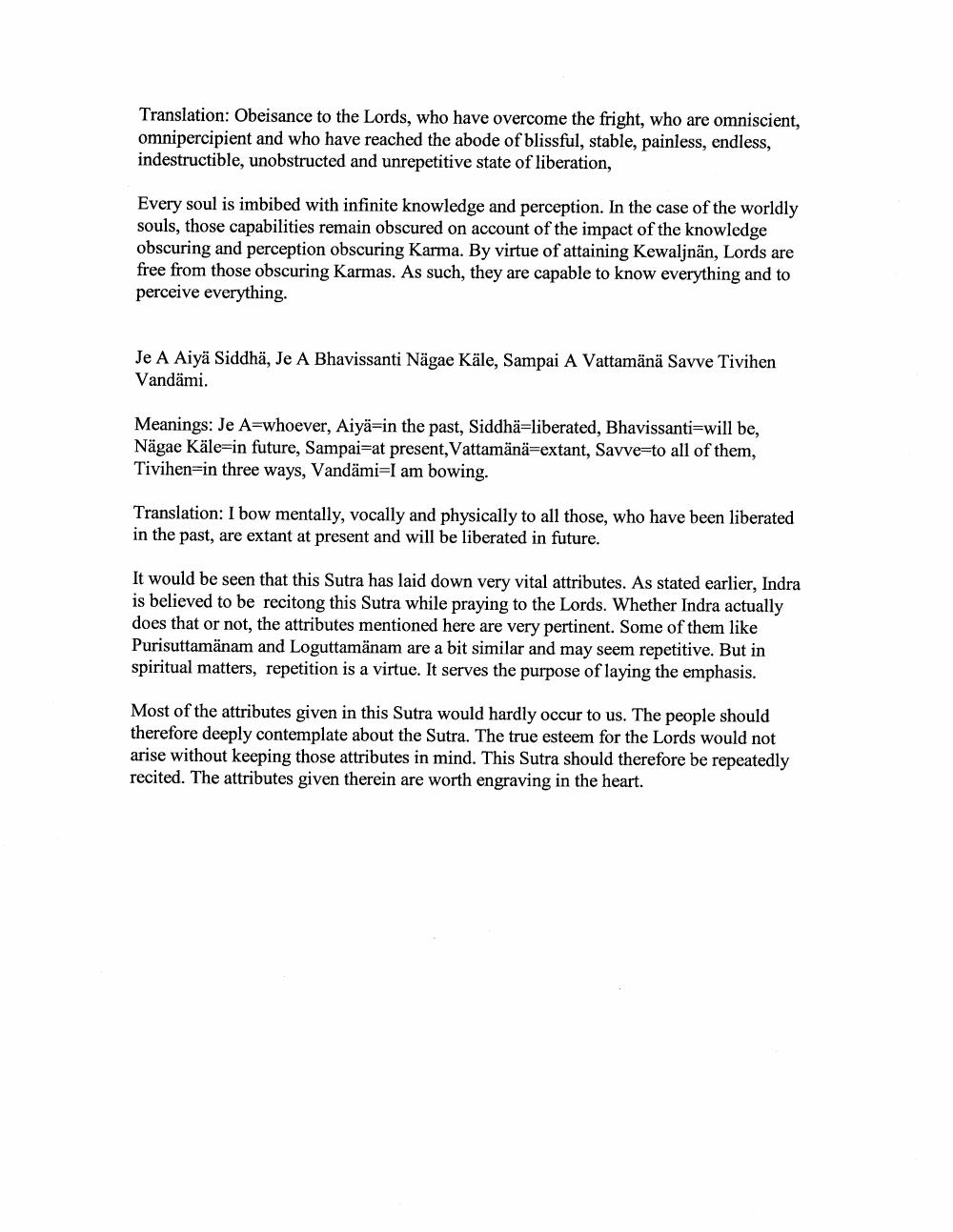________________
Translation: Obeisance to the Lords, who have overcome the fright, who are omniscient, omnipercipient and who have reached the abode of blissful, stable, painless, endless, indestructible, unobstructed and unrepetitive state of liberation,
Every soul is imbibed with infinite knowledge and perception. In the case of the worldly souls, those capabilities remain obscured on account of the impact of the knowledge obscuring and perception obscuring Karma. By virtue of attaining Kewaljnän, Lords are free from those obscuring Karmas. As such, they are capable to know everything and to perceive everything.
Je A Aiyä Siddhä, Je A Bhavissanti Nägae Käle, Sampai A Vattamänä Savve Tivihen Vandämi.
Meanings: Je A=whoever, Aiya=in the past, Siddhä=liberated, Bhavissanti=will be, Nägae Käle=in future, Sampai-at present, Vattamänä=extant, Savve=to all of them, Tivihen=in three ways, Vandämi=I am bowing.
Translation: I bow mentally, vocally and physically to all those, who have been liberated in the past, are extant at present and will be liberated in future.
It would be seen that this Sutra has laid down very vital attributes. As stated earlier, Indra is believed to be recitong this Sutra while praying to the Lords. Whether Indra actually does that or not, the attributes mentioned here are very pertinent. Some of them like Purisuttamänam and Loguttamänam are a bit similar and may seem repetitive. But in spiritual matters, repetition is a virtue. It serves the purpose of laying the emphasis.
Most of the attributes given in this Sutra would hardly occur to us. The people should therefore deeply contemplate about the Sutra. The true esteem for the Lords would not arise without keeping those attributes in mind. This Sutra should therefore be repeatedly recited. The attributes given therein are worth engraving in the heart.




